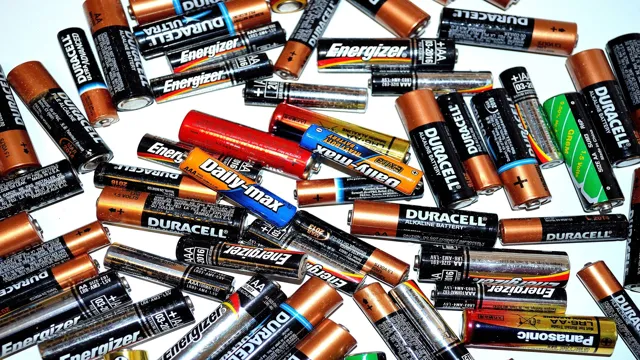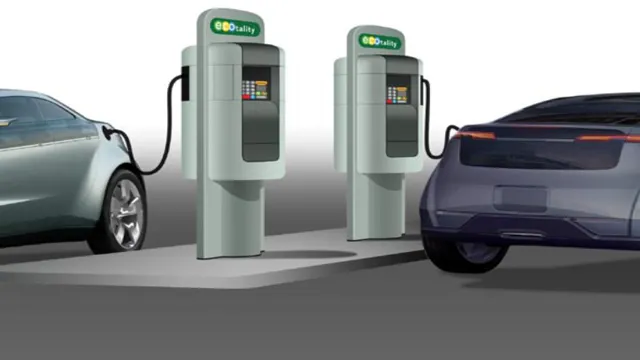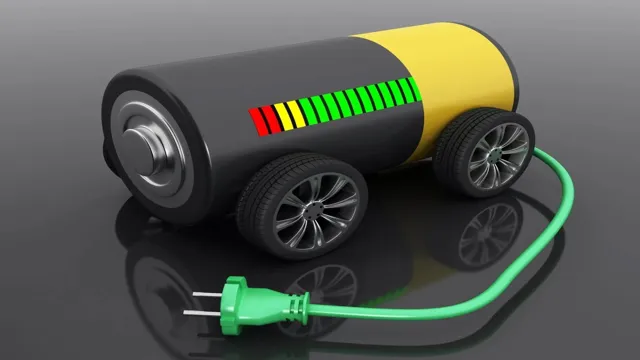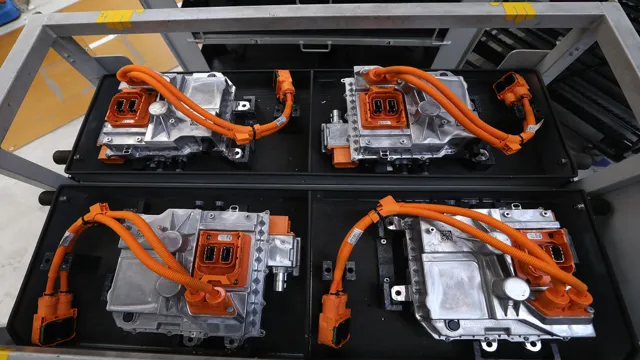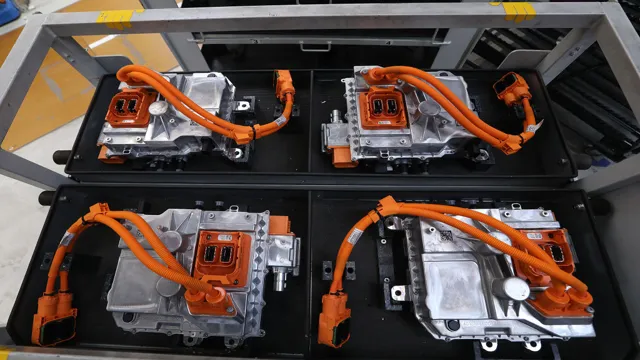Revolutionizing Electric Vehicles: The Future of Sustainability through Battery Recycling
Electric cars have grown in popularity over the years, and for a good reason too. They are efficient, eco-friendly, and cost-effective. However, with the increased use of electric vehicles, the disposal of the batteries has become an issue.
Improper disposal of these batteries poses risks to the environment and human health, but that’s where recycling comes in. Recycling electric car batteries is an essential process that benefits the environment in various ways while also making it easier for vehicle manufacturers to source raw materials. In this blog, we’ll explore the importance of recycling electric car batteries, what the process entails, and the benefits that come with it.
So, buckle up, and let’s dive in!
Importance of Battery Recycling
Can batteries in electric cars be recycled? Absolutely! In fact, it’s incredibly important that they are. Battery recycling not only preserves valuable resources and reduces waste, but it also plays a crucial role in protecting the environment. The materials in electric car batteries, such as lithium and cobalt, are finite resources that can be reused in new batteries or other products.
Additionally, if these batteries are not properly disposed of or recycled, they can release harmful chemicals and pollutants into the environment. Recycling ensures that these materials are safely and responsibly reused, reducing the overall impact of electric car batteries on the environment. So, the next time you’re wondering what to do with your old electric car battery, remember the importance of recycling and find a qualified facility to take care of it for you.
Reducing Waste and Environmental Impact
Battery recycling is important for reducing waste and environmental impact. Batteries contain materials that can be harmful to the environment if not disposed of properly. For example, some batteries contain heavy metals like lead, mercury, and cadmium that can leach into the soil and water.
Recycling batteries helps to prevent these materials from ending up in landfills or being released into the environment. It also reduces the need for new materials, conserving natural resources and reducing energy consumption. Recycling batteries may not be something that people think about every day, but it is an important step in protecting the planet and conserving resources for future generations.
So, the next time you’re ready to throw away your used batteries, think twice and consider recycling them instead.
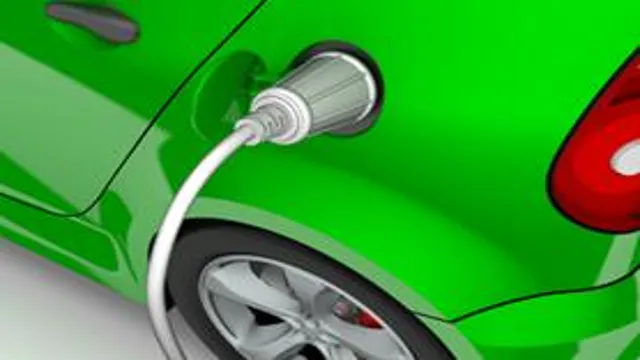
Supply Chain Management
Supply Chain Management Battery recycling is becoming increasingly important in the supply chain management of companies that use batteries, especially those used in renewable energy sources like solar panels and electric vehicles. Not only does recycling batteries reduce the need for mining, it also reduces the environmental impact of disposing of old batteries, which are made of materials that can be harmful to the environment. Additionally, recycling can help reduce the cost of raw materials for batteries, making them a more cost-effective solution for companies looking to invest in clean energy.
Companies that take a proactive approach to battery recycling can also improve their reputation with customers and investors, demonstrating their commitment to sustainable business practices. As the world moves towards a greener future, battery recycling will continue to play a critical role in the supply chain management of companies from various industries.
Current Recycling Methods
Can batteries in electric cars be recycled? Yes, they can. Currently, there are different recycling methods for electric car batteries. One method is called pyrometallurgical recycling, which involves burning off the plastic casing of the battery, melting down the metals, and separating them to be reused.
Another method is called hydrometallurgical recycling, which uses chemicals to dissolve the metals and then separates them for reuse. However, these methods are still in the early stages and there are some concerns regarding the environmental impact of the chemicals used in the hydrometallurgical process. Nonetheless, as electric cars become increasingly popular, it is important to continue investing in more efficient and environmentally-friendly recycling methods for their batteries.
This ensures that we can maximize the potential of electric vehicles while minimizing their impact on the environment.
Hydrometallurgy
Hydrometallurgy is a commonly used method for recycling metals. In this process, metals are extracted from their ores or products through the use of chemical reactions. One popular type of hydrometallurgical process is called leaching, which involves dissolving metals from their ores using a solution.
Another common method is solvent extraction, where a liquid solvent is used to extract metals from a solution. Both of these methods have their advantages and disadvantages, depending on the type of metal being extracted and the specific impurities present in the solution. Despite its effectiveness, hydrometallurgy has some limitations, such as its high cost and the potential for environmental harm.
As a result, researchers are continually searching for new and improved recycling methods that are both efficient and eco-friendly.
Pyrometallurgy
Pyrometallurgy As the world’s consumption of resources continues to rise, it’s becoming more important than ever to find ways to recycle those resources instead of relying solely on mining and extraction. One method of recycling that’s becoming increasingly popular is pyrometallurgy. Simply put, pyrometallurgy involves heating up materials to high temperatures to extract desired elements.
This method can be used to recycle metals from electronic waste, for example. One advantage of pyrometallurgy is that it can work on a large scale, making it an efficient way to process waste materials. However, it does have some drawbacks, such as producing greenhouse gases and requiring significant energy inputs.
Overall, pyrometallurgy is a promising recycling method that’s worth exploring further.
Mechanical Recycling
Mechanical recycling is one of the most commonly used methods for recycling plastic materials. This method involves collecting and sorting plastic waste, before shredding and melting it down into new products or raw materials. Mechanical recycling is currently the most widely used method of recycling plastics, as it is relatively easy and cost-effective.
However, it does have its limitations, as it can only be used to recycle certain types of plastics, and the recycled plastic may not be of the same quality as the original material. Despite these limitations, mechanical recycling is an important part of the plastics recycling process and is vital for reducing the amount of plastic waste that ends up in landfills and the environment.
Future Developments
As electric cars become more popular, a growing concern is what happens to all those batteries once they reach the end of their life. Can batteries in electric cars be recycled? The good news is, yes they can! In fact, recycling electric vehicle batteries can be very beneficial to the environment. These batteries are typically made up of materials such as lithium, cobalt, nickel, and aluminum which can be difficult to extract and refine.
However, the recycling process can recover up to 95% of these metals, reducing the need for new mining and minimizing the environmental impact. In addition, recycled batteries can be used for grid storage, providing a sustainable source of energy. While the technology for recycling electric vehicle batteries is still relatively new, with the increasing popularity of electric cars, the infrastructure for battery recycling is likely to grow, making it even more feasible to recycle these batteries in the future.
Improving Efficiency
As technology continues to advance at an exponential rate, it’s no surprise that future developments will contribute to improving efficiency across various industries. One example is the use of artificial intelligence (AI) in streamlining processes and tasks. With AI-powered tools, operations can be automated, allowing for faster, more accurate results.
Another development that could revolutionize efficiency is the rise of 5G networks, which can offer lightning-fast data transfer rates and lower latency for real-time applications. Additionally, the implementation of blockchain technology can provide secure and transparent data tracking, allowing for easier and faster transactions across different systems. These developments show exciting potential for increasing productivity in the workplace, ultimately leading to improved profitability and customer satisfaction.
Exploration of Novel Recycling Methods
As we move forward into the future, the need for sustainable and environmentally-friendly practices becomes more pressing. One of the most crucial issues facing us today is the amount of waste we generate and the lack of effective recycling methods available. However, innovative solutions are emerging that offer hope for the future.
One such development is the exploration of novel recycling methods. Unlike traditional recycling, which involves breaking down products into basic materials, these new methods aim to repurpose waste materials into entirely new products. For example, researchers are experimenting with transforming plastic waste into fabrics and even building materials.
This not only reduces the amount of waste in landfills but also provides new opportunities for sustainable production. The potential for these new methods is immense, and we can only hope they become widespread in the near future.
Conclusion
In conclusion, while batteries in electric cars may not be the easiest to recycle, it is definitely possible. As the demand for electric vehicles continues to rise, it is crucial to prioritize sustainability and find ways to repurpose and recycle these batteries. By doing so, we can not only reduce waste and carbon emissions, but also pave the way for a more environmentally friendly future.
So, the next time you’re cruising in your electric ride, remember that those battery cells can still spark joy even after they’ve powered your car for thousands of miles.”
FAQs
Why is it important to recycle batteries in electric cars?
It is important to recycle batteries in electric cars because they contain toxic chemicals, such as lead and lithium, which can harm the environment if they are not properly disposed of.
How are batteries in electric cars recycled?
The recycling process involves removing the valuable materials, such as cobalt and nickel, from the battery and then refining them for use in new batteries or other products. The remaining materials, such as plastics and metals, are also recycled.
Can all types of batteries in electric cars be recycled?
While most batteries in electric cars can be recycled, some older models may contain materials that are harder to extract and recycle. However, advancements in technology have made it easier to recycle a wider range of batteries.
What are the benefits of recycling batteries in electric cars?
Recycling batteries in electric cars helps to conserve natural resources, reduce greenhouse gas emissions from mining and manufacturing, and prevent potentially harmful substances from entering landfills. It also supports the development of a circular economy for these materials.
